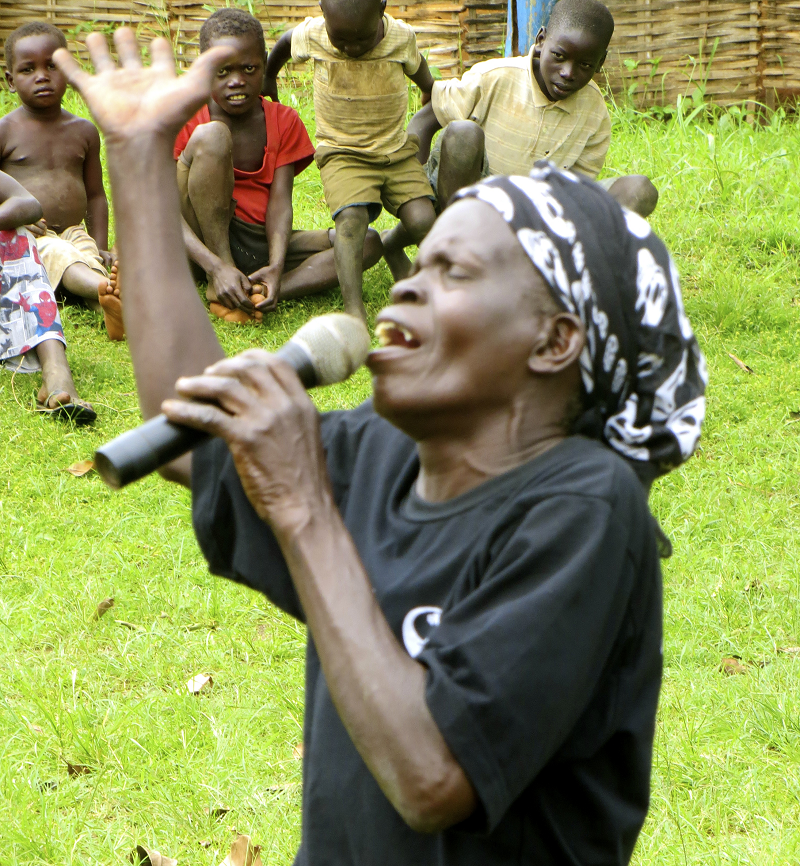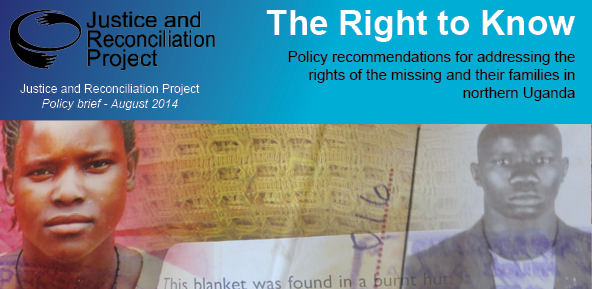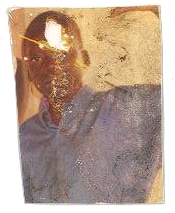
On August 28 2015, JRP organized a dialogue with representatives of family of the missing from four sub-regions of West Nile, Teso, Acholi and Lango as part of a campaign to create awareness for missing person in Lira called ‘The Right to Know’. This started with a procession from Lira District Chambers through the streets in Lira and later to Apostolic Centre with the people like religious leaders, traditional leaders, families of the missing and other civil society organizations like African Youth Initiative Network, Justice and Peace Commission, Northern Uganda Media Club, Concerned Parents Association and several media persons to spread the messages of the family of the missing.
A short prayer was made by Pastor Martin Odongo after a representative of the four sub-regions lit a candle. The burning candles were a symbol of light in the life of those who had gone missing.
During remarks given by JRP Head of office JRP Boniface Ojok, there was emphasis on the importance of recognizing the 30th of August as a day in remembrance of those who have disappeared in Uganda. Mr Ojok spoke about the need for the government to incorporate the issue of the missing persons in its policy in order to meet the social, legal and to a greater extent economic challenges facing the missing and their families. This is because, he said, the issue of the missing can be a long term impediment to peace. JRP’s 2014 policy brief, ‘The Right to Know – Policy Recommendations for Addressing The Rights of The Missing and Their Families in Northern Uganda’ reflected this by providing recommendations for acknowledgment of the missing persons, a comprehensive policy in regards to missing persons, and support for ongoing research outside of the scope of the brief.
When representatives of the families of the missing of across northern Uganda spoke at the event, many said that they are living with trauma, stigma, land conflict and lack of family support. Because there has been little acknowledgment of the issue of the missing as being important the families live in pain and isolation with feelings of anxiety for information on the whereabouts of their children.
During the Acting Resident District Commissioner for Lira and District Security Officer, Frank Madulo’s speech, he acknowledged the work of JRP in advocating for the missing and their families by making its calls victim oriented. He further made mentioned that he will ensure that the government acknowledges 30th August being the day for the disappeared persons. to support the families of the missing and to incorporate the issue of the missing persons in Uganda’s forthcoming Transitional Justice (TJ) policy.
Joyce Abalo is a Project Assistant with JRP’s Community Mobilisation department.








